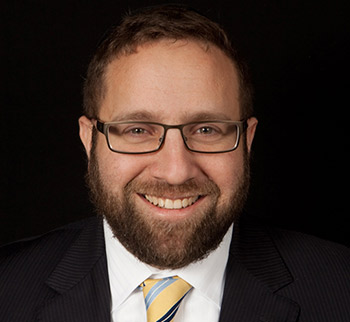I must admit I was slightly skeptical about the Shabbat Project. Frankly, it wasn’t clear to me how it could actually work in a city as diverse as Toronto. While it was clearly a massive and heartwarming success in South Africa last year, there are significant differences between the South African and Toronto Jewish communities. But I was wrong. The Shabbat Project on Oct. 24-25 was overwhelmingly successful in the most important and far-reaching ways. Here’s what I think it taught us, both as individuals and as a community:
First, it showed the power of a positive Jewish idea. A simple idea from an individual in South Africa exceeded his wildest expectations in its first year, and then one year later exceeded everyone’s wildest expectations! In the daily Amidah, we say “Atta chonen l’adam da’at” – “You [God] give humans wisdom.” This brachah is a reminder that our ideas are divinely inspired, and just like the divine, they have infinite potential. This Shabbat reminded us of this power. Was it perfect? What is? Did it exceed wildest dreams? Absolutely.
Second, this Shabbat gave everyone, from those who observed Shabbat for the first time (of which I had the honour of meeting 10 of those families) to those who are already Shabbat observant a new experience. Often, Jews say that we are “keeping” Shabbat – as if it is something to just “keep” in a box or preserve. Other times people say we have to “observe” Shabbat, as if it is something to watch from a distance. Furthermore, we tend focus on all of the “don’ts” of Shabbat – just don’t tear the toilet paper or turn on the lights- as if, if you were to resist doing those actions, you have just experienced the apex of a Shabbat experience. In reality, we are supposed to celebrate Shabbat, as we should celebrate being Jewish. True, there is a structure and a form – and that is important and worthy of study to see the beauty and depth behind every nuance – but the goal is to celebrate Shabbat. This Shabbat Project allowed thousands to not keep or observe Shabbat, but to celebrate it. I felt it in our singing and dancing at Kabbalat Shabbat, as well as in the chesed we shared on Shabbat afternoon and our glow-in-the-dark musical Havdallah, and I’m sure others did, too. Shabbat was celebrated by many for the first time!
Finally, but perhaps most important, who says that Jews can only come together in times of tragedy? This summer’s painful events in Israel and around the world gave birth to a level of achdut, unity, that many had forgotten was even possible among the Jewish People. However, our times of unity should not only come about in crisis situations. Our shared values should be the source of our bond, and we should come together in celebration rather than sadness. That’s what happened this Shabbat.
I am not sure if it was just my wife and I, but we found that everyone was greeting us with a friendly “ShabbatsShalom” or “Good Shabbos.” The feeling was that Shabbat was in the streets of Toronto and in the heart of all of Toronto’s Jews, regardless of how you dressed or your background. Shaarei Tefillah Congregation experienced this togetherness the most when we had a beautiful pre-Shabbat tisch followed by a Kabbalat Shabbat where we had representatives from so many different backgrounds of Jews in our midst, as equals, welcoming Shabbat together. When Shlomo Simcha began Mizmor L’Dovid, our shul erupted in song and dance, and as I stood back before entering the celebratory crowd, it looked messianic to me.
Things that we have in common with others bring us even closer together, be it profession, interests in music, hobbies. Often, it is the one thing that we actually all have in common, our Judaism, that is the source of what divides us. But that night, as we entered into a 25-hour period of celebrating Shabbat and our Judaism together, we realized that it could and should be a source of what brings us closer together than any other connection.
Already the ripple effects of the Shabbat Project are beginning to appear. Just this past Thursday, after a class we have at a local Starbucks, I saw Jews from very different backgrounds who probably have all frequented the same Starbucks for several years and never found a reason to introduce themselves starting to reach out to one another. I am Jewish, you are Jewish, and wow – I like a latte and so do you! That is two things in common. I’m sure there are more. And this is just the beginning!
So while there are always questions and the work is never done, the Shabbat Project reminded me that, to paraphrase Echad Ha’am, it isn’t the Jews that keep Shabbat, it is Shabbat (and in this case the Shabbat Project) that is helping keep Jews Jewish and together.
I’m looking forward to the many more ripple effects to come.
Rabbi Rafi Lipner is senior rabbi at Shaarei Tefillah Congregation in Toronto and executive director of the House www.thehousetoronto.com.
